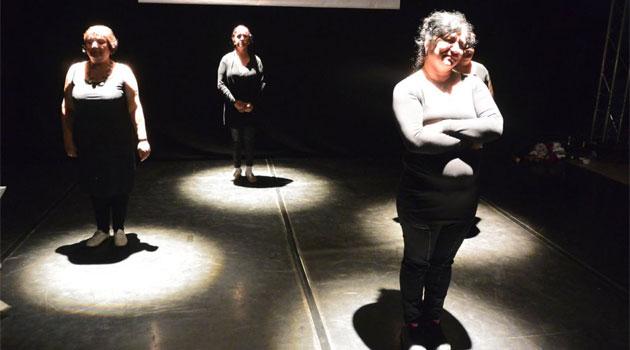Illegally sterilized Romani women from Slovakia and the Czech Republic launch online petition as part of their fight for justice

The Center for Civil and Human Rights, an NGO in Slovakia, has published a press release announcing an online petition that has been launched by illegally sterilized Romani women from Slovakia and the Czech Republic. The initiative is attempting to achieve justice from the government institutions in both countries that are responsible for delivering redress, and news server Romea.cz is publishing the press release in full translation below:
It has been 15 years since the publication of the report entitled “Body and Soul“, which warned of the practice of the forced sterilization of Romani women in Slovakia and the former Czechoslovakia. The extent of this practice, however, has not yet been thoroughly investigated and the vast majority of women harmed have still not received justice. Several of these women, therefore, in collaboration with the Center for Civil and Human Rights, a non-governmental organization, have decided to initiate a petition campaign through which they are asking the broader public for support.
Exactly 15 years ago, on 12 January 2003, the Center for Civil and Human Rights, in collaboration with the Center for Reproductive Rights, an international organization, released the report entitled “Body and Soul: Forced Sterilization and Other Assaults on Roma Reproductive Freedom”, which documented cases of the illegal sterilizations of Romani women and other violations of their human rights during the provision of health care. Their conclusions were based on 230 interviews undertaken with Romani women from socially marginalized communities in eastern Slovakia, most of whom suspected they had been sterilized without giving their prior informed consent. The report attracted significant attention from the broader public, governmental and international human rights institutions. The authors of the report called on the Slovak Government to effectively investigate cases of forced sterilizations and to adequately compensate the women harmed.
In the Czech Republic this problem was also warned of in a significant way by the Final Statement of the Public Defender of Rights of the Czech Republic, Otakar Motejl, of 2005, which investigated several dozen complaints of illegal sterilizations of women. In his Final Statement, the Public Defender stated that mistakes had been made and, among other measures, he also recommended compensating the women harmed.
Recommendations to that end have been repeatedly sent to the Slovak and Czech Governments by many international human rights institutions. In the Czech Republic, compensation for illegally sterilized women has already been discussed at Government level for years, but the proposed legislation to undertake such compensation was ultimately not adopted by the Government for submission to the legislature. Both Governments, to this day, have yet to completely fulfill the recommendations of international institutions in this area. Some of the illegally sterilized women have turned to the Slovak and Czech courts for compensation. Some of those cases have been decided by the European Court of Human Rights in Strasbourg, which between 2011 and 2013 has ruled that these women’s rights were violated by the illegal sterilizations and awarded the women harmed compensation for their non-pecuniary damages. The courts, however, always decide about cases brought individually, which means it is not possible to look at the problem comprehensively and to basically document what the overall character and scope of this practice has been.
A group of illegally sterilized Romani women from Slovakia and the Czech Republic, in collaboration with the Center for Civil and Human Rights, has therefore launched a petition campaign today, the aim of which is to warn the responsible institutions in both countries and the broader public of the fact that the topic of the forced sterilizations of Romani women is not yet closed and that it is important that both countries finally settle it. In accordance with recommendations by international institutions, the women are asking the Governments of both countries to take responsibility for this practice, to establish an independent body to investigate the scope of the practice, and to arrange for adequate compensation to all women harmed. The broader public can support this call by signing the petition.
“The Governments of both countries must finally begin to take action. It is a disgrace that many of their citizens have been waiting so long for justice. Illegal sterilization is a serious human rights violation for which the state bears unequivocal responsibility. The courts, however, are not an effective way to provide justice to all of the women harmed,” said Vanda Durbáková, the attorney who has represented several of the women harmed in court.
“The level of any democracy is based on how it manages to arrange for the protection of human rights and access to justice by members of disadvantaged groups and minorities. It is high time that the Governments in Slovakia and the Czech Republic take action in a such a way as is to be anticipated from a democratic country – that they take responsibility for investigating the practice of illegal sterilizations and arrange access to justice for all women harmed. Other countries such as Sweden, Switzerland and Norway have come to terms in the past in just such a way with the practice of ethnic minority women, or women living with disabilities, having been illegally sterilized,” said Štefan Ivanco, program coordinator of the Center for Civil and Human Rights.
